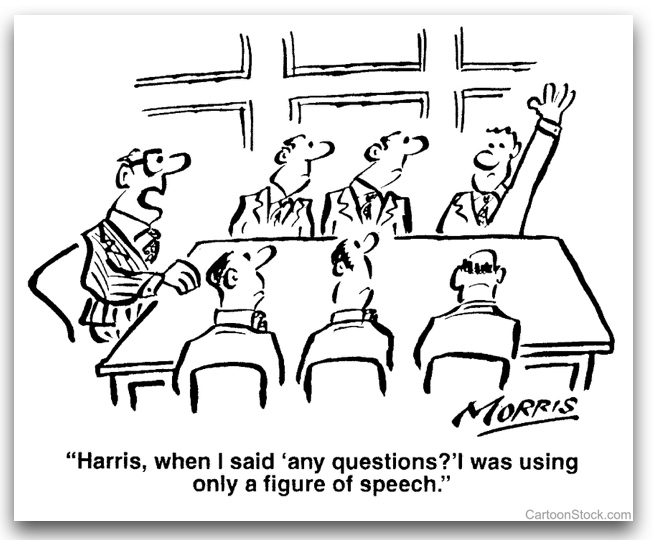 Never doubt that a small group of thoughtful, committed citizens can change the world: indeed, it’s the only thing that ever has. Margaret Mead
Never doubt that a small group of thoughtful, committed citizens can change the world: indeed, it’s the only thing that ever has. Margaret Mead
I have never understood why some leaders, when they are developing strategy and making decisions, are reluctant to include other people in the process. I can’t really think of any downside in doing so. You have assembled a team of smart, engaged people who love your organization; why wouldn’t you seek their input?
One of my favorite leadership mantras is: All of us are smarter than one of us. The IQ of the team is always greater than the IQ of any one person, and the IQ of the team can even exceed the sum of the intelligence of individual team members—collective team intelligence can produce a 1+1 = 3 outcome.
For instance, one study found that, on their own, participants got only 10 percent of the answers correct on a tough logic test. When they worked as a group, the score soared to 80 percent.
Collaborative wisdom will always exceed individual wisdom. Any idea or plan will be improved upon when submitted to the wisdom of others.
Collaborative leadership is more important now than ever before because in our complex society, functioning as a soloist will produce inferior results. The Lone Ranger is dead. Good leaders know that they don’t have to have all the ideas or know all the answers, and that’s why they’re eager to receive input from others. Wisdom does not necessarily flow from the top down.
I’m not suggesting that as a leader you relinquish all control—it is the leader’s responsibility to make decisions, and everyone knows that. And, I’m not suggesting that you lead by consensus—there are times when consensus is impossible and even undesirable. But if you truly listen to others and they know that their thoughts help shape decisions, there will be a healthy sense of unanimity when you make the final decisions.
During World War II, General Eisenhower made a habit of visiting his troops on the frontline, and he would ask the soldiers, “What do you think?”
We should follow his example. Feedback is a gift.
James Surowiecki’s book, The Power of the Collective, talks about the wisdom of crowds. Here’s a video of the author speaking on this topic.
[youtube id=”pTI6u_gbilY”]
[callout]12 best books I read last year: book 1 of 12
How We Got to Now – Six Innovations That Made The Modern World – Steven Johnson, 2014.
Blending science and history, Johnson tells a fascinating story about glass, cold, sound, clean, time, and light. Click here for more information from Amazon. [/callout]
[reminder]What are your thoughts about this essay?[/reminder]
